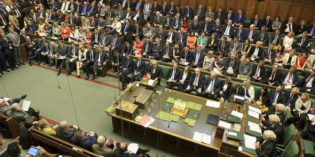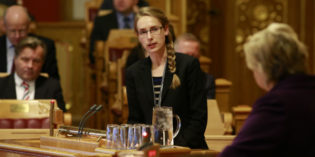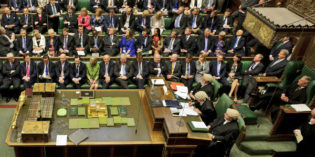Parliament

More women at the top? Why we see variation in local–national gender gaps for elected assemblies
There is considerable variation in the representation of women in elected chambers between different levels of government, but the differences are not uniform between countries. By examining the unusual case of Germany, where the representation of women is greater at higher echelons, Jessica Fortin-Rittberger, Christina Eder, Corinna Kroeber and Vanessa Marent find that the nature of the party system is crucial, in particular the strength of left-leaning and minor parties, which has implications for understanding levels of representation in other democracies.

The UK and Canada: democratic legitimacy could matter more than geographic representation in the upper chamber
Upper chambers have the potential to represent different geographic groups within a multinational state, and so accommodate minority identities. However, research by Mike Medeiros, Damien Bol and Richard Nadeau indicates that, though there is support for democratic reform of the House of Lords and Senate in Scotland and Quebec respectively, there is, in fact, greater support for central democratic reform than for subnational representation.

A citizens’ convention for UK democracy is more necessary with every passing day
Many democratic societies have benefited from establishing conventions of citizens chosen at random to deliberate on major constitutional questions. Now is the time for the UK to have its own citizens’ convention, argue Graham Allen and Andrew Blick, to rebuild and renew our fractured representative democracy.

Engaging the public with the scrutiny of legislation requires more than just asking for their views
Cristina Leston-Bandeira and Louise Thompson examine the impact of a stage of the legislative process piloted by the House of Commons in 2013, during which the public were invited to comment on a bill undergoing parliamentary scrutiny. They explain why, despite an impressive response, the Public Reading Stage failed to make much of an impact.

The optics of a cabinet reshuffle: PR vs reality
Increasing the number of women in Cabinet is widely perceived as a positive move, and Theresa May’s January reshuffle was presented as a bold step to make the government more diverse, writes Jessica Smith (Birkbeck). However, it failed to fulfil its own promises, and so missed an opportunity to create significant change in levels of representation at the top.

Majoritarianism reinterpreted: why Parliament is more influential than often thought
Though Westminster is often seen as lacking the teeth to affect government policy, this is not the case, writes Felicity Matthews. She argues that reforms to shift the balance between government and parliament have served to offset the declining vote basis of government, and have ensured that Westminster remains responsive to a majority of the electorate through the legislative process.

How are PMs held to account? A survey of procedures in 32 parliamentary democracies
How are prime ministers held to account by their parliaments, and how do UK mechanisms on the matter fare in comparison to those in other countries? Ruxandra Serban (University College London) explores the different procedures in place across 32 parliamentary democracies to answer these questions.

Book review | Legislation at Westminster: Parliamentary Actors and Influence in the Making of British Law
In Legislation at Westminster: Parliamentary Actors and Influence in the Making of British Law, Meg Russell and Daniel Gover offer a comprehensive and empirically rigorous assessment of the role that parliament plays in the UK policy-making process. This is a meticulously researched book, writes Ed Page, that is a must-read for both students and scholars wanting to better understand how laws […]

Where would an English Parliament be located?
Ongoing UCL Constitution Unit research is exploring options for an English Parliament. The choice of location would have major practical implications, as well as being of high symbolic importance. Jack Sheldon (UCL Constitution Unit) sets out the factors that would need to be considered. He suggests that while a ‘dual mandate’ English Parliament would almost certainly meet […]



 Democratic Audit's core funding is provided by the Joseph Rowntree Charitable Trust. Additional funding is provided by the London School of Economics.
Democratic Audit's core funding is provided by the Joseph Rowntree Charitable Trust. Additional funding is provided by the London School of Economics.